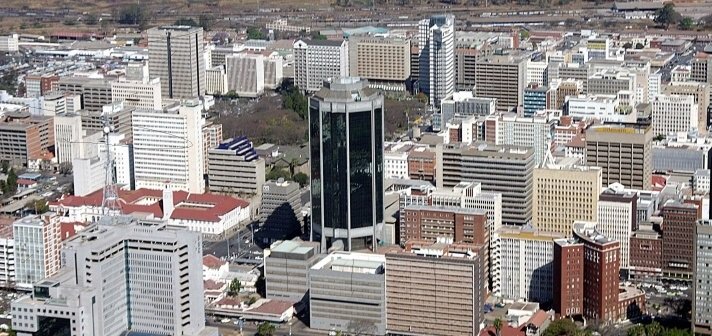By Cyril Zenda
Zimbabwe’s protracted economic problems have resulted in depressed demand for properties in all sectors, resulting in the country having the lowest rentals in sub-Saharan Africa, a report by international property firm, Knight Frank, has indicated.
In its 2017 Africa Report, Knight Frank said Zimbabwe’s prime property rentals ranked among the lowest in Africa because of suppressed demand, resulting from the economic difficulties that the country has been going through for nearly two decades.
Knight Frank has real estate consultants in more than 350 offices worldwide.
The report said Zimbabwe’s most expensive residential properties — at rentals averaging $2 000 per month — were only higher than those of Botswana, which average $1 900. All other rentals — office, retail and industrial — were lower than most regional averages.
The report profiled more than 30 countries covered by its research.
Whereas Zimbabwe’s up-market residential rentals averaged $2 000, they were nowhere comparable to the
$15 000 charged in Luanda (Angola), the $10 000 in Kinshasa (Democratic Republic of Congo), the $5 500 in Maputo (Mozambique), the $4 500 in Johannesburg and $5000 in Cape Town (South Africa) and the $3 500 charged in Lusaka (Zambia). In Windhoek (Namibia), the residential prime rents averaged $2 900, $4 500 in Dar es Salaam (Tanzania), $5 000 in Kampala (Uganda) and $4 100 in Nairobi (Kenya).
In Harare, prime office rentals averaged $10 per square metre, compared to Angola’s $80, Mozambique’s $27,50, DRC’s $25, South Africa’s $18, Zambia’s $20 and $11,50 in Gaborone (Botswana).
At $25 per square metre, Zimbabwe’s retail space is cheaper than the $80 in Angola, $60 in South Africa, $48 in Kenya, $40 in Zambia and $28 in Mozambique.
As for the industrial rents, Zimbabwe’s $3 per square metre is cheaper than the $15 charged in the DRC, $10 in Angola, $6 in Zambia, $5,50 in Mozambique and $5 charged in South Africa.
The report noted that lack of mortgage finance to assist home seekers had slowed down up market housing developments in Zimbabwe
“Low disposable incomes and poor liquidity have depressed rental levels and reduced property prices. Therefore, no major speculative housing developments have been built in recent times, and the few attempts to construct such projects have failed. The available new stock has mainly come from self-built projects and housing cooperatives.”
On the office segment of the property market, Knight Frank pointed at the high vacancies as the reason for the depressed rentals.
“Zimbabwe is suffering from economic and liquidity challenges which have stagnated office market activity. Supply is higher than demand and tenants are voluntarily surrendering space. Office buildings in the Harare CBD have void rates in excess of 50 percent, making them unattractive investments.
“Suburban offices have become more sought-after investments, due to their lower void rates, but there continues to be few sales transactions. To reduce vacancy levels, some CBD landlords are converting office space to shops, while others are partitioning floors into smaller suites.”
The report said that the demand for retail space remained high although there were increasing vacancies in the central business district.
“Empty units in the CBD have become visible and vacant space is taking long to lease. Retailers face stiff competition from street vendors who sell their goods on shop pavements. The construction of new suburban shopping malls such as the Mall of Zimbabwe and the Gunhill Mall has been shelved in light of the country’s poor economic outlook.
“Nonetheless, demand for prime suburban retail space remains buoyant and there are high occupancy rates in this sector. Prime rents are currently higher for suburban retail space, at US$25/sq m/month, compared with US$20/sq m/ month in the CBD.
In the industrial segment of the market, it concluded that the continued decline of the economy had led to several manufacturing companies closing operations leading to high vacancies.
“Very little foreign direct investment has come into the country as a result of the government’s indigenisation policies, the high cost of capital and socio-political instability. This has led to an oversupply and under-utilisation of industrial space. The sector is therefore characterised by high vacancy rates, declining rents and the voluntary surrender of leased space by tenants.
“A number of investors in this sector are looking to disinvest, but there is little or no demand except from a few owner-occupiers.”








